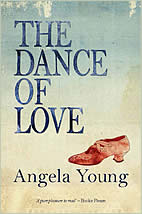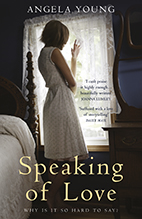On 1 July Meike Ziervogel, founder and publisher at Peirene Press, published this:

Translation is Europe’s only common language.
Umberto Eco
It’s a thoughtful and thought-provoking piece about the UK referendum, Brexit, and the importance of listening to other people’s stories. These are Meike’s words, not mine, but they’re published here with her permission. The whole piece set me thinking. I’ve emboldened the parts that make me want to do something and that I wish I’d had the wisdom to work out for myself:
At the beginning of the week [27 June 2016] I was asked by The Society of Authors to reflect on the UK/EU referendum result and the way ahead for translated works. Here is what I wrote for them:
In my weekly blog, The Pain and Passion of a Small Publisher, I have personified Peirene, the ancient Greek Nymph who also lends her name to my publishing house. In the blog entry from the 26th of June I describe what happened in our office the morning after Brexit. Peirene was so upset that she went straight back to bed. I spent the day sitting by her side stroking her head, worrying about her. Would she slide into a depression? Or worse: leave the country? But the next morning her fighting spirits had returned: ‘The referendum has made clear what we’ve always suspected: this country needs to learn to listen to other people’s stories, only then it will change for the better,‘ she told me. She continued: ‘We have an important mission that hasn’t yet been accomplished. We can’t give up half way.’
Needless to say, I agree with Peirene. But I’m also aware that if we are going to succeed, I too have to become better in listening to other people’s stories.
Recently an English novelist friend confessed to me that she doesn’t enjoy reading contemporary foreign literature in translation. She finds that, in comparison to English novels, translated books are often marked by impoverished language and stilted narrative. My friend is not alone. I have heard this argument from other readers before. Moreover, I can see where they are coming from. Because English possesses a larger amount of vocabulary than most other languages, our novels tend to be wordy. And because of the straight forwardness of the basic English syntax – subject, verb, object – English fiction writers are gifted in producing compelling, linear narratives. After all, the syntax influences how we organise reality.
It is therefore no surprise that a stark Finnish drama or a French novella where no word should be taken at face value, can present a challenge, maybe even an unpleasant reading experience. So why should we put ourselves through such ordeals?
Long before the invention of the phonetic alphabet, at a time when we were still hunter-gatherers, we humans developed the skill of ‘reading’ and interpreting the languages of others. And not only of other humans. We knew how to interpret the movement of the clouds in the sky, could read the animal footprints in the forests and understood the bird sounds above our heads. We knew we had to listen to what is outside ourselves – strangers, animals, the environment – telling their stories in their own way – because such engagement was vital to our survival.
Today, in every day life, we mostly consume stories we know and where we can identify personally. This is of course most evident with social media. But it’s also true for the books we read. What sounds strange or unusual to us, we tend to reject and often judge as ‘bad’, ‘uninteresting’, ‘boring’.
I’m guilty of that too. For example, there are no Turkish or Eastern European novels in Peirene’s programme, despite my best efforts to find some. Or so I claim. But no book from any of these countries has so far gripped me. I search for strong imagery, powerful characterization, tight plotting. My judgement draws from an appreciation of Western European prose. I’m more and more aware that I will probably never find anything unless I change my perspective so that I can begin to understand these different literary sensibilities.
The shocking victory of Brexit came about because the campaign tapped into people’s fears of foreigners and strangers. Fear is caused when we feel threatened. And we feel threatened when we don’t understand.
In our increasingly small, overpopulated, environmentally endangered world we need to collaborate to survive. But collaboration requires understanding and this is only possible if we are willing to engage with the narratives of strangers – narratives that might at first jar with what we know and like.
If I – a professional of the ‘story industry’ – resist leaving my comfort zone and only listen and read stories that sound familiar, how can I then expect others to have an open ear to new and strange tales? The Nymph is right, this country needs to learn to listen to other people’s stories, only then will it change. But we – writers, publishers, agents, critics, booksellers – have to be courageous enough to lead by example.
Thank you Meike and Peirene.





Leave a Reply